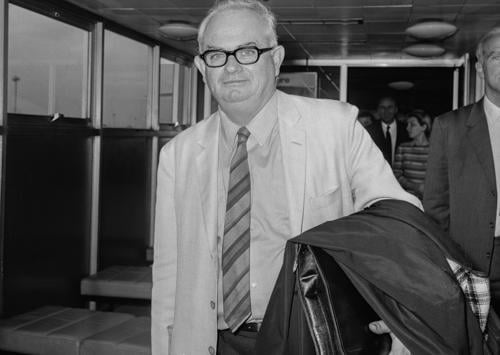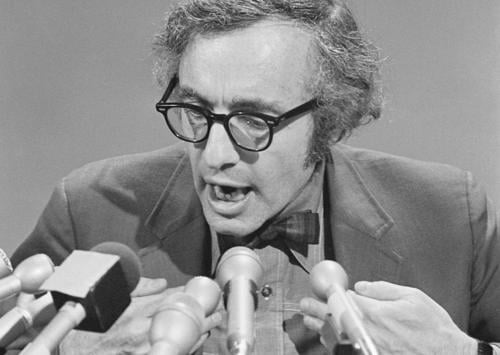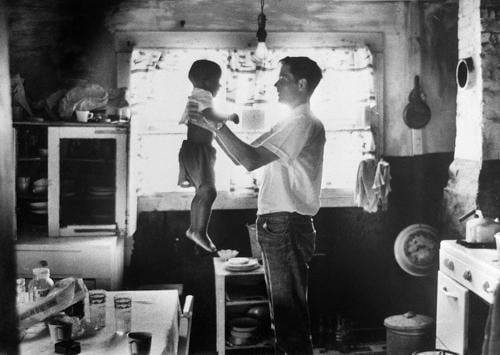Listen to New Voices on Studs Terkel our partnership with 826CHI-here! Read the Story
Showing 1 - 15 of 56 results
-
William Shirer discusses his book “Twentieth Century Journey: 1930-1940: Volume II”
Jun. 1, 1984 Discussing the book "Twentieth century journey: 1930-1940" with the author William Shirer.
-
William Shawcross discusses his book “Sideshow: Kissinger, Nixon and the Destruction of Cambodia”
May. 25, 1979 Investigative journalist William Shawcross speaks with Studs Terkel about Cambodia, Henry Kissinger, and Shawcross’ book, “Sideshow: Kissinger, Nixon and the Destruction of Cambodia.” Both Terkel and Shawcross read excerpts from Shawcross’ book and Terkel reads an excerpt from an interview Henry Kissinger did with reporter Theo Summer.
-
Wilfred Burchett discusses about his career on journalism
Oct. 24, 1977 Wilfred Burchett (an Australian journalist) discusses his journalism career. He was reporting conflicts in Asia (North Korea, Vietnam, China and Japan) and their Communist supporters. He speaks briefly about his experiences in Nazi Germany and concentration camps. Towards the end of the interview he talks about his interest in learning and reporting more about the new euro-communism (prominent in Italy, Spain and France).
-
Tom Wicker discusses his book "On Press: A Top Reporters Life In, And Reflection On, American Journalism"
May. 18, 1978 Wicker discusses advocacy journalism versus objective journalism, freedom of the press, and the role of the press in American society.
-
Thomas Keneally discusses the book "Schindler's List"
Nov. 12, 1982 Thomas Keneally discusses the book "Schindler's List," detailing the actions of Oskar Schindler saving Jews during WWII.
-
Studs Terkel talks with three World War Two veterans
Apr. 17, 1985 Interviewing Ed Ruff, Joe Polowski, and Leroy; three veterans of the meeting of U.S. and Soviet forces at the Elbe River on April 25, 1945. The result of this meeting was the splitting of Nazi Germany into two parts and the ensuring of victory in Europe.
-
Studs Terkel is interviewed by Mitch Kraus and Edward Teller and Albert Szent-Gyorgy discuss science and politics
Dec. 29, 1970 Part 1 of this recording is Mitch Kraus interviewing Studs Terkel on his thoughts of self-indulgence, stereotypes, generational challenges, and historical events.
-
Robert Jay Lifton discusses his book "Living and Dying"
Jan. 6, 1975 With his book, "Living and Dying," Robert Jay Lifton, said the point he wanted to make clear is that individuals have to confront death in order to live well. Lifton also talks about deniers of death and their numbing feelings. Social change with regards to death, explained Lifton, will need to occur.
-
Raymond Bonner discusses his book "Waltzing with a Dictator: The Marcos and The Making of American Policy"
May. 21, 1987 Interviewing author Raymond Bonner on American foreign policy, America’s relationship with dictators, and the rise of the Marcos family. Includes a test tone lasting about 30 seconds. Content Warning: This conversation includes racially and/or culturally derogatory language and/or negative depictions of Black and Indigenous people of color, women, and LGBTQI+ individuals. Rather than remove this content, we present it in the context of twentieth-century social history to acknowledge and learn from its impact and to inspire awareness and discussion.
-
Professor Ali Irani [pseudonym name to protect his identity] talks about the regime of the Shah [Mohammad Reza Pahlavi]
Nov. 8, 1978 Professor Ali Irani (pseudonym name) is a Humanities professor at a recognized midwest university that discusses the regime of the Shah, Mohammad Reza Pahlavi. Includes a fiften minute interview with an American couple, Luis and Joan Smiley, that talks about their experience with students protesting the regime in Kentucky, Louisiana.
-
Paul Cowan discusses his book "The Making of an UnAmerican", part 2
May. 4, 1970 Writer and activist Paul Cowan discusses the Peace Corps and his book "The Making of an UnAmerican", part 2
-
Marcel Ophuls discusses his documentary films
Apr. 30, 1984 Discussing the showing of his films with film maker Marcel Ophuls.
-
Laurence Shoup discusses his book, "The Carter Presidency and Beyond: Power and Politics in the 1980s"
1970 Author Laurence Shoup discusses his book, "The Carter Presidency and Beyond: Power and Politics in the 1980s," and explains how President Carter came to be elected. He describes the Trilateral Commission and other groups created by corporations and the richest American families to lobby. the government. He also discusses the Carter presidency and his double-dealing with major issues such as unions and regulating big businesses.





